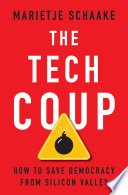Meta's Bold $14.3B Bet: Why Scale AI Could Make or Break the Superintelligence Race
Meta just dropped $14.3 billion on Scale AI in what might be the most telling move yet about where the AI arms race is heading. This isn't just another acquisition—it's a desperate play for relevance in a game where Meta has been consistently outmaneuvered by competitors.
The Deal's Unusual Structure
The investment is structured as a minority stake, giving Meta significant influence without full control. Scale AI's 28-year-old CEO Alexandr Wang will join Meta to lead their new "Superintelligence lab," while Jason Droege takes over as Scale's CEO. This careful choreography appears designed to sidestep regulatory scrutiny—a lesson learned from Amazon's Anthropic investment and Microsoft's OpenAI partnership.
Meta's AI Struggles Run Deeper Than Expected
What makes this deal fascinating isn't just its size—equivalent to 10% of Meta's 2024 revenue—but what it reveals about Meta's internal AI challenges. The company appears to be struggling with organizational dysfunction across multiple AI divisions, with conflicting priorities and leadership changes hampering progress.
The formation of a third AI lab suggests Meta's existing efforts haven't delivered the breakthrough results needed to compete with OpenAI, Google, and Anthropic. This isn't just about catching up; it's about survival in an industry where AI capabilities increasingly determine platform relevance.
The Scale AI Advantage
Scale AI's core strength lies in data preparation and model training infrastructure—the unglamorous but critical foundation of AI development. While data labeling might seem like a commodity service, Scale has built sophisticated systems for handling the massive, high-quality datasets that modern AI models require.
Strategic Implications
This move signals several important shifts in the AI landscape:
Data as the New Oil: Meta's willingness to pay premium prices for data infrastructure expertise shows how critical high-quality training data has become.
Talent Acquisition at Any Cost: Bringing Wang and his team aboard represents a massive bet on leadership and expertise, even at astronomical compensation levels.
Regulatory Gaming: The minority stake structure creates a blueprint for how tech giants can acquire AI capabilities while minimizing antitrust risks.
The Risks Are Enormous
Meta's track record with major acquisitions is mixed at best. While WhatsApp proved transformative, the metaverse pivot consumed billions with little to show for it. The company is essentially betting that Wang can succeed where their existing AI teams have struggled.
Moreover, the unusual structure means Meta gets limited control over Scale AI's direction while paying acquisition-level prices. If the partnership fails to deliver breakthrough results, Meta will have little recourse.
Conclusion: A Make-or-Break Moment
Meta's Scale AI investment represents more than just another tech deal—it's a recognition that the company's AI future hangs in the balance. With competitors pulling ahead and internal efforts faltering, this $14.3 billion gamble might be Meta's last chance to remain relevant in the AI era.
The success or failure of this partnership will likely determine whether Meta remains a major player in the next phase of computing or becomes another cautionary tale about missing transformative technology shifts. For a company that has consistently struggled to predict and adapt to platform changes, the stakes couldn't be higher.



